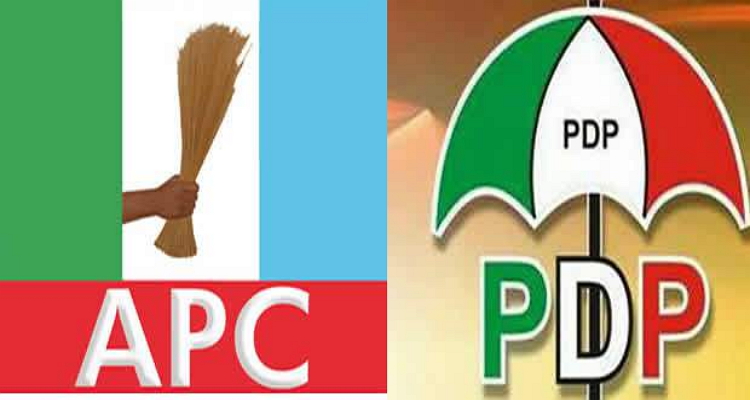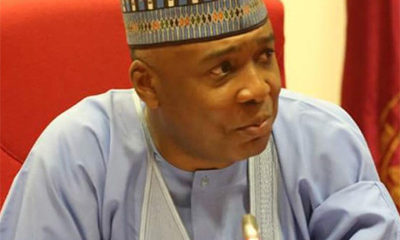Uncategorized
How Lagos Guber Candidates Are Bracing Up For De Day

By Lukman Amusa
As the battle for the seat of Lagos State governor gathers momentum, our correspondents take a look at the strengths and weaknesses of the frontline candidates
Babajide Sanwo-Olu, All Progressive Congress (APC)
Until his emergence as the governorship candidate of the ruling All Progressives Congress, Babajide Sanwo-Olu was relatively known in the administration of Governor Akinwunmi Ambode where he served as the Managing Director of the Lagos State Development andProperty Corporation (LSDPC). Before that, Sanwo-Olu served at various times as special adviser tothe former deputy governor, Femi Pedro and former governor, Bola Tinubu. He was to later serve as two-term commissioner under Babatunde Fashola. Sanwo-Olu’s political profile got a boost recently when Governor Ambode ran into trouble with Tinubu, his godfather and national leader of the APC and other prominent stalwarts. He thus became the chosen one. After a grueling campaign that saw him edge out Ambode, Sanwo-Olu has so far managed to channel a focus for his campaign.
Days after his affirmation as the party’s flag bearer, Sanwo-Olu started confidence-building mechanisms that includemeeting with royal fathers and community leaders in courtesy visits, settling of issues with Governor Ambode and his loyalists, mergingpolitical structures with Ambode’s and securing the adoption of a number of opposition parties, among others.
While the efficacy or otherwise of the steps so far taken by Sanwo-Olu cannot be measured at this time, observers are unanimous in singling out Tinubu’s political machinery that has been winning elections in the state in the past 20 years as his most potent edge above other competitors. The machinery was instituted in 1998 and has been piloted by Tinubu himself, deploying at will to win elections from the old Alliance for Democracy (AD) in 1999 and 2003, to Action Congress (AC) in 2007 and Action Congress of Nigeria (ACN) in 2011 before birthing in the All Progressives Congress (APC) in 2015.
However, there are fears that notwithstanding the reconciliatorymoves so far instituted to pacify aggrieved members of the party after
the APC controversial primary in the state, there are many people who are still bitter with the treatment meted out to Ambode and may choose to retaliate by joining hands with opposition members.
That fear was to be confirmed on Wednesday, December 5, when the Commissioner for Energy and Mineral Resources in Ambode’s cabinet, Olawale Oluwo, tendered his resignation and declared support for the leading opposition candidate, Jimi Agbaje of the PDP. Central to Oluwo’s resignation was how the APC gubernatorial primary was conducted. Political pundits believe that there are many more aggrieved persons like Oluwo in the party and their decision to get back at the party may eventually hurt its fortunes in the general elections.
Babatunde Gbadamosi, Action Democratic Party (ADP)
Though not known to have held any elective office before now, Babatunde Olalere Gbadamosi is not totally an unknown figure in Lagos politics. Ahead of the 2011 and 2015 gubernatorial elections, the estate developer had tried his luck unsuccessfully under the platform of the PDP.
Popularly known as BOG, Gbadamosi, who is one of the sons of the late chairman of the Petroleum Products Pricing and Regulatory Agency (PPPRA) Chief Rasheed Gbadamosi, had always lost in all attempts at the party’s primaries. The 2015 experience was perhaps more devastating for him. At the PDP’s December 2014 gubernatorial primary
that produced Agbaje, Gbadamosi, who sensed that he was schemed out of reckoning after being deceived that process would be free and fair, decided to voice out his grievances even before the result of the primary was announced at the venue. He, alongside other contenders in the primary,was later pacified by President Goodluck Jonathan to sheathe their swords and support Agbaje’s candidacy.
After winning the ADP’s gubernatorial ticket in October, Gbadamosi said his emergence would set Lagos free from the captivity of political godfathers. That line of argument, observers say, might resonate with many Lagos residents who have been yearning for something new in the state’s political horizon. However, there are worries that the state-wide political structure required to mobilizepeople at the grassroots might be lacking for the Ikorodu-born
politician. The extent to which he can weather the storm in the days ahead, remain to be seen.
Jimi Agbaje, People’s Democratic Party (PDP)
Mr. Jimi Agbaje, the PDPcandidate,is contesting on a familiar terrain.
Like he confessed during the flag-off of his campaign last Saturday the ruling APC mocks him as a regular ‘customer’ whom it had always defeated and is hoping to re-enact that in 2019.
But will Agbaje change the course of history? This is the challenge which many might see as a tall dream pointing to the perceived invincibility of the ruling hegemony. To Agbaje and his supporters as well as the party which gave him the platform, 2019 is a decisive year to feel the aura of governance in the Alausa GovernmentHouse.
But this is an arduous task which some observers in the polity would want to view as impossible to undertake. Agbaje has kicked off his campaign with a message of freedom and entrenchment of true democracy in the Lagos political firmament. The fallout of the APC primaries has invigorated their resolve.
Many people see the rejection of Ambode as the humbling of a chief executive who was denied his right. This is what the PDP is trying to capitalize on as it kicks off its campaign. Analysts believe that the sentiment of Ambode’s second term denial might not be enough to defeat the APC whose structure is still very solidin the 20 LGs and 37 LCDAs of the state.
Agbaje and his team will have to embark on very rigorous house tohouse campaigns, selling their manifesto to the people and highlighting the different policies and programmes they would bring to bear in the governance of the state.
Speaking recently, Agbaje vowed to beat the APC flat this time around and assured of his intention to champion the freedom of the state, saying the contest is between a one-man Lagos and the people.
Agbaje also hopes to improve on his performance in the 2015 election where he garnered over 600,000 votes as against the APC’s 700,000.
According to him, those huge votes are still intact and he only needs to leverage on the performance to actualise his dream of ruling the state.
Chief Salis Owolabi, Alliance for Democracy (AD)
Like Agbaje, Chief Salis Owolabiis not a greenhorn in the contest. He is a long time member of the PDP where he has always been a governorship aspirant. He must be tired of being referred to as an aspirant which probably informed his decision to dump the PDP for the AD.
Owolabi is one candidate who cannot be dismissed with a wave of hand. The US-based attorney has got contacts, the clout and the deep pocket to prosecute his gubernatorial campaign. As the gubernatorial campaign kicked off, he is probably one of the most visible candidates that Lagosians have come to identify with.
Also, the AD is not an unknown platform. In fact, it used to be the ruling party in the state under which Asiwaju Bola Tinubu came to power. No doubt, the fame of the party has waned significantly but the personality of Owolabi could give some life to the party in Lagos ahead of the election. Owolabi is said to be leveraging on his support base in the PDP to pull some crowd to his side but he is still seen as an unpopular candidate in the race.
Muyiwa Fafowora, African Democratic Congress (ADC)
Formerly the PDP chairman in Ibeju Lekki Local Government Area, Muyiwa Fafowora got a towering profile in October after emerging as the governorship candidate of the ADC in the primary.Although, Fafowora is not known to have a strong political base across
the state, many believe he would be banking on the growing popularity of his party to reach the grassroots. His political stint in the PDP is also being touted as an advantage for him.
However, the challenge of adequately covering every sections of the state with his campaign is an issue many believe has to be properly addressed if he is to make any significant impact in the election.












